W styczniu 2025 roku Polska wprowadziła obowiązkową segregację tekstyliów, co stanowi przełom w dotychczasowym systemie gospodarowania odpadami. Nowe przepisy unijne fundamentalnie zmieniają sposób, w jaki postrzegamy i utylizujemy odpady tekstylne.
Według danych Ministerstwa Klimatu i Środowiska,already over 70% of Polish municipalities have introduced special containers for textile waste, and housing cooperatives and communities have begun reorganizing their waste management systems. Residents are slowly getting used to the new system, which includes not only clothing but also other household items made of fabric.
To help citizens understand the new rules, local authorities and waste management companies are conducting intensive informational campaigns. The campaigns focus on educating people about proper textile segregation and its impact on the environment.
First signs of change
Just a few days after the introduction of the new regulations, the first signs of change are already visible. Clothing stores are reporting increased customer interest in product composition and durability, as well as possibilities for later recycling. Local groups on social media are organizing clothing exchange events, and second-hand shops are noting increased interest.
In many cities, new textile collection points are being established, and charity organizations are adapting their programs to the new regulations. The first signs of new job creation related to textile waste processing and segregation are also emerging.
Consumption habits are changing
The introduced changes are also affecting Poles’ purchasing habits. More and more people are paying attention to the quality and potential durability of the textiles they buy, moving away from fast consumption towards more conscious choices.
According to a survey conducted by the Polish Ministry of Economy, 65% of respondents declared that they are more willing to buy clothing made from sustainable materials, and 55% stated that they are more likely to repair or reuse old clothes.
Building social bonds
The first weeks of the new system’s operation also show that it has the potential to build new social bonds. In many local communities, initiatives focused on exchanging and reusing textiles are emerging, promoting neighborhood integration.
Industry growth
The recycling industry is already noting the first signs of revitalization. New investments in textile waste processing technologies are being made, and waste management companies are expanding their activities to include new textile-related services.
Experts predict that the full effects of the introduced changes will be visible in the coming months, as residents fully adopt new habits related to textile segregation. Already, however, it is clear that this change can become a catalyst for broader transformations in consumption and environmental protection.
Sources:
* Ministry of Climate and Environment
* Polish Ministry of Economy
* European Commission
* Polish statistical data


